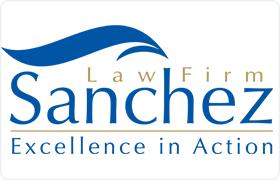Fort Bend County, TX Credit & Debt Lawyers
Sponsored Law Firm
-
 x
x

Click For More Info:
-
Sanchez Law Firm
150 W. Parker Rd. 3rd Floor Houston, TX 77076» view mapReal Estate Excellence In Action
We advocate for our clients in and out of court. When you and the system meet head on, you need an attorney who is experienced, credible, and active.
800-785-3351
Susan Griffin Lowery
Credit & Debt, Family Law, Litigation, Juvenile Law
Status: In Good Standing Licensed: 40 Years
David Michael Freedman
Real Estate, Litigation, Credit & Debt, Bankruptcy & Debt
Status: In Good Standing Licensed: 51 Years
Jeffrey Frank Duke
Credit & Debt, Personal Injury, Family Law, Oil & Gas
Status: Inactive Licensed: 18 Years
Mario Alejandro Martinez
Litigation, Family Law, Credit & Debt, Personal Injury
Status: In Good Standing Licensed: 25 Years
David Frishman
Construction, Litigation, Administrative Law, Credit & Debt
Status: In Good Standing Licensed: 52 Years
John Robert Jones
Bankruptcy & Debt, Credit & Debt, Intellectual Property, Bankruptcy
Status: In Good Standing Licensed: 34 Years
William Madison Colgin
Environmental Law Other, Insurance, Banking & Finance, Credit & Debt, Personal Injury
Status: In Good Standing Licensed: 28 Years
Shawn Christopher Johnston
Litigation, Family Law, Business & Trade, Credit & Debt
Status: In Good Standing Licensed: 10 Years
Charles R. Slone
Commercial Real Estate, Oil & Gas, Wills, Credit & Debt
Status: Inactive Licensed: 66 Years
Alan Ray Cervenka
Commercial Real Estate, Family Law, Criminal, Credit & Debt
Status: In Good Standing Licensed: 42 Years
 Benjamin Sanchez Houston, TX
Benjamin Sanchez Houston, TX Practice AreasExpertise
Practice AreasExpertise
